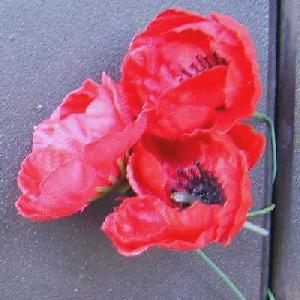Topic: BW - Vic - 4VIB
4th VIB
4th Victorian Imperial Bushmen
Outline
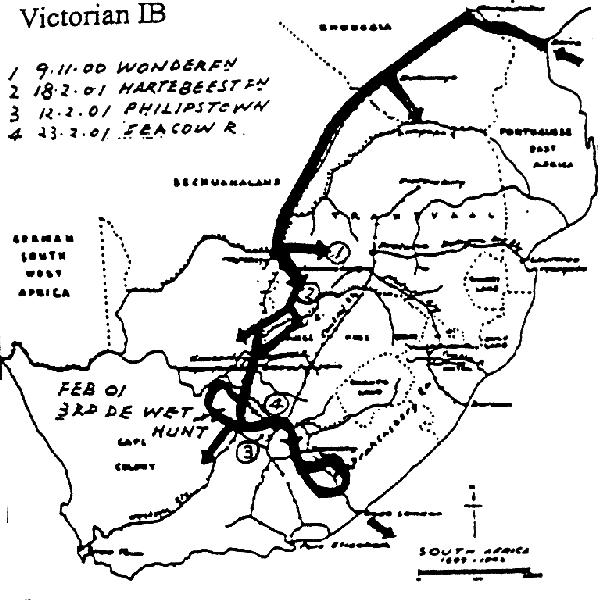
Map illustrating the activities of the 4th Victorian Imperial Bushmen in South Africa, 1900-1901.
[From: Chamberlain, M., The Australians in the South African War 1899-1902, Canberra, 1999.]
In 1911, Lieutenant-Colonel P. L. Murray, produced a marvellous Boer War reference detailing all the contingents sent from Australia to South Africa, giving a brief history of the formation and finally, listing all the soldiers who saw service in South Africa with that unit. The book was called, Official Records of the Australian Military Contingents to the War in South Africa. It is now the standard reference and starting place for any person interested in pursuing information about Australian involvement in the Boer War.
Murray, P. L., Official Records of the Australian Military Contingents to the War in South Africa, pp. 252 - 257.
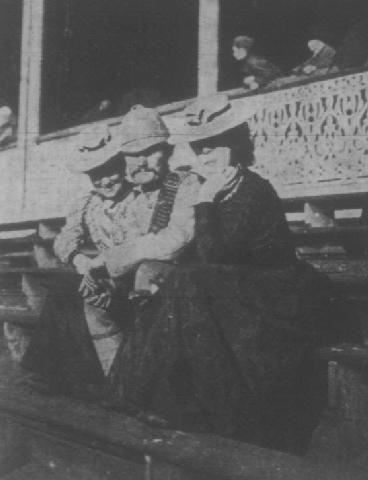
The Fourth (Imperial) Contingent.
At the request of the Imperial Government, which desired that a corps of seasoned bushmen, bold riders, and sharpshooters, should be enrolled, capable of successfully contending with a guerrilla enemy, this Contingent as raised. The officers and men were to serve directly under the Imperial Government and be subject entirely to it. The period of service was limited to twelve months or the duration of the war.
General Order 16 (Victoria), 1900, notified that applications would be received from officers of the Forces and those who had previous military service as officers for appointment to this Contingent. Candidates were required to be capable horseman, and to have had a certain amount of bush experience.
Clothing, Etc.
Uniform consisted of khaki cloth F.S. jacket, pants, puttees, hat, F.S. cap. Greatcoats and boob were also issued; and a full kit (underclothing and necessaries).
Rifles and bayonets were supplied in South Africa. Cartridge belts, with supporting braces, issued in Victoria. Fully horsed and supplied with saddlery. Regimental transport was provided.
Pay.
Pay was issued at Imperial rates. This, in the first instance, prior to service outside the borders of Cape Colony and Natal, varied from £1 1s. 6d. per diem, Lieutenant-Colonel, to 1s. 2d. private.
The rates of pay when serving in South Africa outside such borders were as follow:-
Brigadier-General, £2 10s. per diem, with 12s. field allowance;
Commandant, £1 5s. and 4s;
Major, £1 3s. and 4s.;
Captain. Adjutant, Quartermaster, each £1 1s. and 3s.
Subaltern, 15s. and 2s. 6d.;
Medical Officer, Veterinary Officer, each £1 and 3s.
Colonial allowance for all officers, 3s. per diem;
officers employed on Army Service Corps, 5s. per diem additional.
Warrant and N.C.O.'s and men.-
Regimental Sergeant-Major, 8s. per diem;
Quartermaster Sergeant, 8s. 6d;
Company Sergeant-Major, 8s.;
other Sergeants, 7s.;
Corporals, 6s.:
Privates, 5s.;
Buglers, Saddlers, and Farriers, 1s. per diem extra.
N.C.O.'s and men were entitled to a gratuity of £5 if discharged medically unfit, or on account of services being no longer required in connexion with the war, or on termination of engagement. In case of death when serving, the gratuity to be credited to the estate. This gratuity to be in addition to the gratuity (if any) at the end of the war. (A.O., July, 1900.)
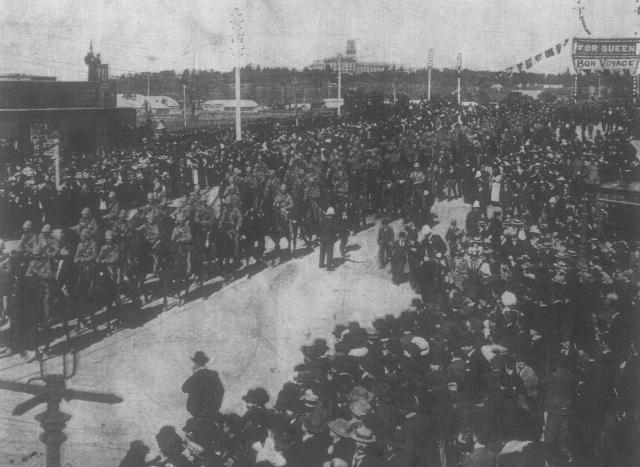
[From: The Australasian, 5 May 1900, p. 981.]
Establishment.
The establishment authorized was as follows, being five companies of Mounted Rifles, with staff for one battalion of four companies:
Regimental staff.-
1 Lieutenant-Colonel,
1 Major,
1 Adjutant,
1 Quartermaster,
1 Medical Officer,
1 Veterinary Officer,
1 Regimental-Sergeant Major,
1 Regimental Quartermaster-Sergeant,
2 Orderly-Room Clerks,
2 Medical Orderlies,
12 Batmen;
total, 24, with 18 horses and 1 wagon.
Details of a company.-
1 Captain,
4 Lieutenants,
1 Colour-Sergeant,
1 Farrier Sergeant,
6 Sergeants,
3 Shoeing-Smiths,
1 Saddler,
6 Corporals,
2 Buglers,
97 Privates;
Total, 121, with 126 riding horses, 15 pack horses, and 2 wagons
Total of five companies.-
25 officers,
30 staff-sergeants and sergeants,
26 artificers,
10 buglers,
515 rank and file; in all, 605, with 630 riding, 75 pack 10 wagons. To these were added 50 spare riding horses, 5 pack horses.
Grand total, with staff:-
31 officers,
34 staff-sergeants and sergeants,
25 artificers,
10 buglers,
529 rank and file;
in all, 629, of all ranks, with 778 horses and 11 wagons.
Departure and Return
The Contingent left on 1st May, 1900, consisting of 31 officers (and 2 Supernumeraries), 598 other ranks, with 778 horses and 11 wagons. One officer, 22 were killed or died; 14 officers, 9 others were transferred; 4 officers, 25 others were struck off in South Africa; 1 officer, 1 other were commissioned in the Imperial Army; 17 officers, 504 other ranks returned to Australia.
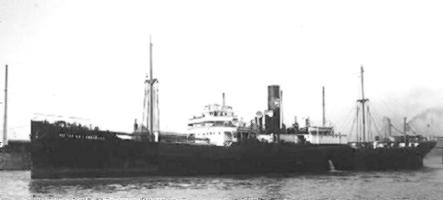
Service.
This Contingent left on 1st May, 1900, by the transport Victorian, and arrived on the 23rd at Beira; disembarked, entrained to Umtali, and marched to Marandellas, reaching there on 11th July.
"A" and "B" squadrons, under Lieutenant-Colonel Kelly, were sent to Buluwayo, and thence by rail to Mafeking. They were then despatched, to Ottoshoop, and formed part of Brigadier-General Lord ErrolI's Brigade, under Lieutenant General Sir Frederick Carrington.
The three remaining squadrons, "C," "D," and "E," under Major Clarke, remained in Rhodesia at Marandellus, Fort Charter, Fort Victoria, Tuli, and Buluwayo; being engaged on the lines of communication until the end of the year, when they were ordered to Cape Colony.
During the months of August and September, 1900, the Transvaal detachment assisted in clearing the enemy out of Ottoshoop; also in combined operations at Zeerust and Jacobsdal; defended convoy at Lowe's Farm, and assisted to capture a large convoy at Malopo Oog. In October a great quantity of supplies was taken, and the enemy driven from a strong position. From 24th October the detachment formed part of the 2nd Mounted Brigade of the 1st Division, under Lieutenant-General Lord Methuen.
On 9th November, surprised a laager at Wonderfontein, and after a lively skirmish, seized their wagons and took a number of prisoners. On 10th, at Manana, captured a pom pom and assisted to secure a large quantity of stock. During the remainder of the month at Lichtenberg, Ottoshoop, Leeuwfontein, Jacobsdal, and Zeerust, engaged in various operations.
During December, besides minor operations, assisted in repulsing an attack upon a convoy, and surprised and captured a laager-portion of De la Rey's.
On 7th January, 1901, relieved garrison at Schwezer Reneke, after some opposition, and captured a large convoy at Uitral's Kop. In February, the progress of the column was impeded by the enemy several times, with losses on both sides, especially at Doornbult. On the 11th and 12th, the Victorians occupied the town of Wolmaranstad, after some resistance, making many prisoners, and capturing arms, ammunition, and supplies. At Harteb, on the 18th, the enemy opened the attack at 7.30 am. The Victorians advanced on the left flank, and the enemy kept up a continuous fire until 1.30 p.m., when they were driven from their positions - losses very heavy on both aides. A huge convoy was brought safely into Klerksdorp, comprising upwards of 16,000 sheep, 6,000 cattle, besides horses, donkeys, wagons, &c.
There were continuous operations until 6th March, when the town of Wolmaranstad was again occupied. During the remainder of the month, and in April, the enemy was constantly engaged, the garrison at Hoopstad was released, and various operations ensued in Orange River Colony. On the 23rd, at Warrenton, ordered to join the other portion of the regiment in Cape Colony.
In October, 1900, “C” squadron left Buluwayo and marched to Tuli, arriving on the 18th. It was in garrison until 23rd November, when they marched to Pont Drift, arriving on 25th; garrisoned it, and patrolled the country until 12th December, when ordered to return to Buluwayo.
In Cape Colony.
"C," "D," and "E" squadrons, under Major Clarke, were engaged at Matjesfontein, collecting stock, removing undesirables, etc., until early in February, when they entrained for De Aar, being attached to Colonel Hon. A. H. Hennikar's column.
On 11th February, 40 man of "C" squadron, under Captain Tivey, made a forced march of 40 miles to Philipstown, and surprised the enemy, who numbered upwards of 300, occupying the adjacent kopjes, and who were driven back and kept in check until reinforcements arrived, when they retired. (Vide extract from Column Order, 14th February.) Captain Tivey subsequently received the D.S.O.
Engaged following up De Wet, and on the 23rd came in contact with the enemy at Reed's Drift, Orange River, where one 16-pr. B.L. gun and one pom pom fell into the hands of the Victorians; three troopers (Sheehan, Green, and O'Brien) being promoted for their share in this. The pursuit was still maintained; the Victorians marching 380 miles in 15 days, and being very highly complimented by Colonel Plumer.
On let March, at the junction of Orange and Sea Cow Rivers, Captain Dallimore and a party of 16 men surprised and captured a party of 33 armed Boers, and 54 horses. During the month the Victorians were operating in Colesberg district, in the vicinity of Fort Brown, and thence to Schoombes, and were in constant touch with the enemy. On the 30th, Sergeant Sandford, Lance-Corporal Wood, and Trooper Browning rescued, under fire, a comrade whose horse had been lost. Sergeant Sandford received D.C.M.; the others mentioned in despatches.
During the months of April and May, from Zurberg to Somerset East District pursued the enemy all the time, kept in touch with them, and prevented them joining forces or doing much damage to towns or farms. On 12th May, a party of 40 encountered a large number of the enemy near Doornbosch, and after a sharp engagement drove them back. From the 28th May to June 22nd, engaged in Queenstown, Tonkastad, and Dordrecht District.
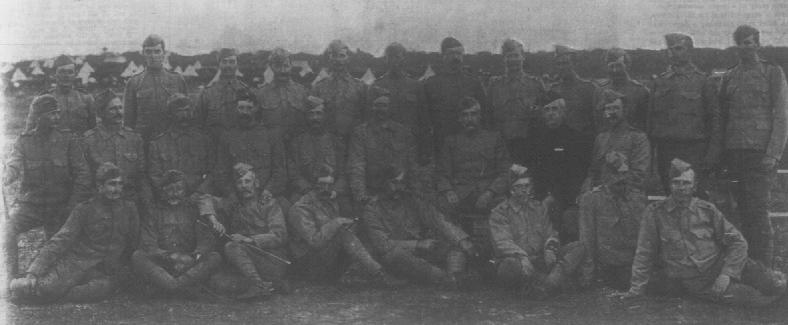
Officers of the 4th Victorian Imperial Bushmen.
(Centre) Lieut. Ffrench, Lieut. Coad, Lieut. Macdonald, Lieut. Purcell, Capt. Sturdee (Medical Staff), Major Clarke, Lt Col Kelly (Commanding Officer), Major O'Farrell (Adjutant), Capt. Tivy.
(Front) Capt. Wollaston, Capt. Downee, Lieut. Moseley, Lieut. Whidburn, Lieut. Cleveland, Lieut. Hutchings, Lieut. Ulbrick, Lieut. Gilpin.
[From: The Australasian, 28 April 1900, p. 927.]
Extracts from Orders
Column Order by Lieut.-Colonel Hon. A. Henniker, CB, Coldstream Guards.
Philipstown, 14th February, 1901."The officer commanding Column has great pleasure in expressing his appreciation of the excellent work carried out by squadron Victorian Imperial Regiment under command of Captain Tivey, on 12th inst. Captain Tivey, by his well-timed advance and skilful handling of his small force, prevented a greatly superior number of the enemy from occupying a position which forms the key to Philipstown, and forced them to evacuate the town with loss. The way in which the whole operation was executed speaks well for the good training and discipline of the Victorian Imperial Regiment."
Extract from Divisional Order, 16th April, 1901, by Lieut.-General Lord Methuen on His occasion of the departure of the detachment from his column."The Lieut: General cannot allow the occasion to peas without expressing to his mounted forces hiss heartfelt gratitude for the splendid service they have performed for their country. Their courage has been undeniable, and there has been an entire absence of any discontent; the hardships f a campaign, during which the division has trekked over 2,900 miles, having been cheerfully faced."
Extract from Brigade Order, 18th April, 1901, by Brigadier-General Lord Erroll.“Brigadier-General the Earl of Erroll, regrets that the time has some when he must say good-bye to the mounted troops. He wishes to take this opportunity of thanking all ranks for the cheerful manner in which they have carried nut his orders during the time they have been under his command; and to express his admiration of the way they have behaved on all occasions, both in the camp and in the field."
Extract from Column Order, 26th April, 1901, by Lieut. Colonel Hon. A. Henniker, C.B."Colonel Henniker cannot permit the Victorian Imperial Regiment to leave his command without expressing to them his thanks for the way in which they encountered and overcome all difficulties during the time they have been with the Column and for their gallant conduct on all occasions. The Contingent has made a name for itself which will be second to none among the many fine bodies of men who have given their services to His Majesty from Australia."
Telegram from Lord Kitchener, Commander-in-Chief, 20th April 1901.“Before Orient sails, please express to the Victorian Imperial Regiment my best the for their services to the Empire whilst in South Africa. I lose them with the greatest regret, and shall always remember with gratitude the good work they have done in this arduous campaign. Please say goodbye to all ranks for me, and wish them good luck."
On 22nd June, the regiment embarked at East London on the Orient transport and arrived at Melbourne on 12th July, having called at Albany on the way. They ware forthwith paid off.
Further Reading:
4th Victorian Imperial Bushmen
4th Victorian Imperial Bushmen, Roll of Honour
Battles where Australians fought, 1899-1920




